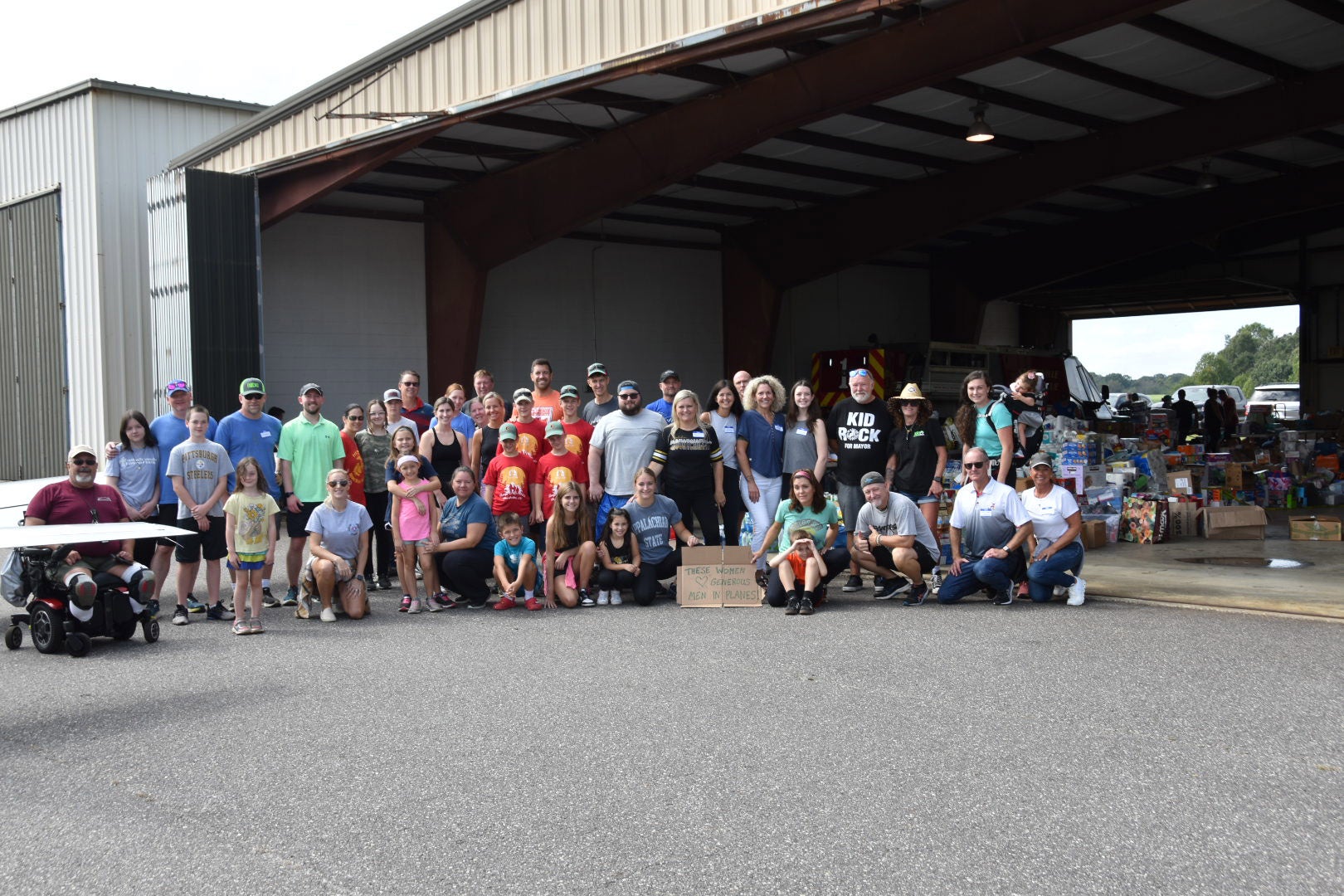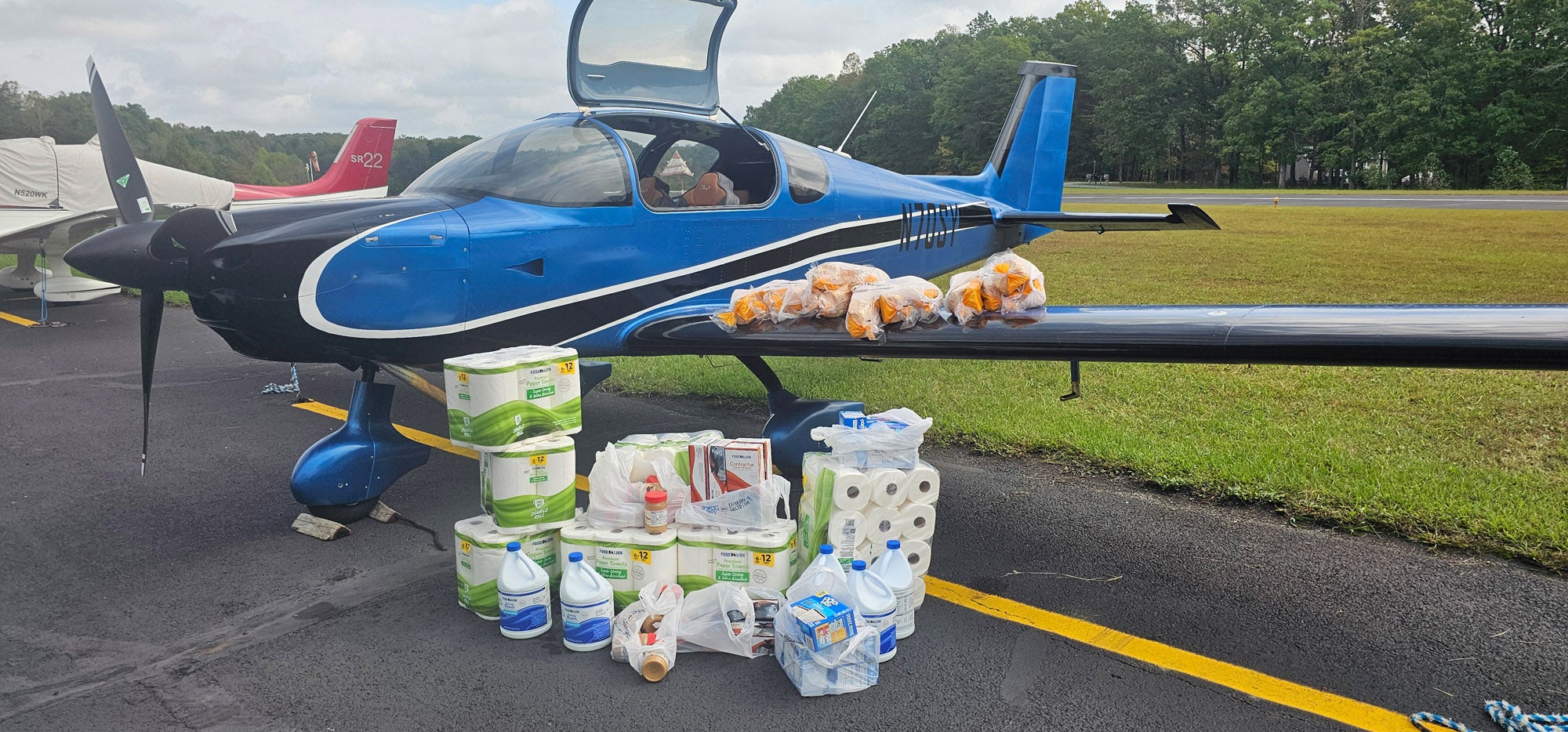
Hurricane Helene hit the Florida panhandle as a Category 4 storm—with winds of 130 to 156 mph—and then tracked north through Georgia, South Carolina and into western North Carolina, where it finally tapered out. When it passed over northwestern South Carolina, it dropped 18 to 24 inches of rain just a few days after the area received 6 inches of rain. The storm toppled trees onto power powerlines, houses, roads, etc. The roads were either blocked by fallen trees, washed out or covered by landslides. The cell towers that were left standing went offline after 48 hours when their generators ran dry.
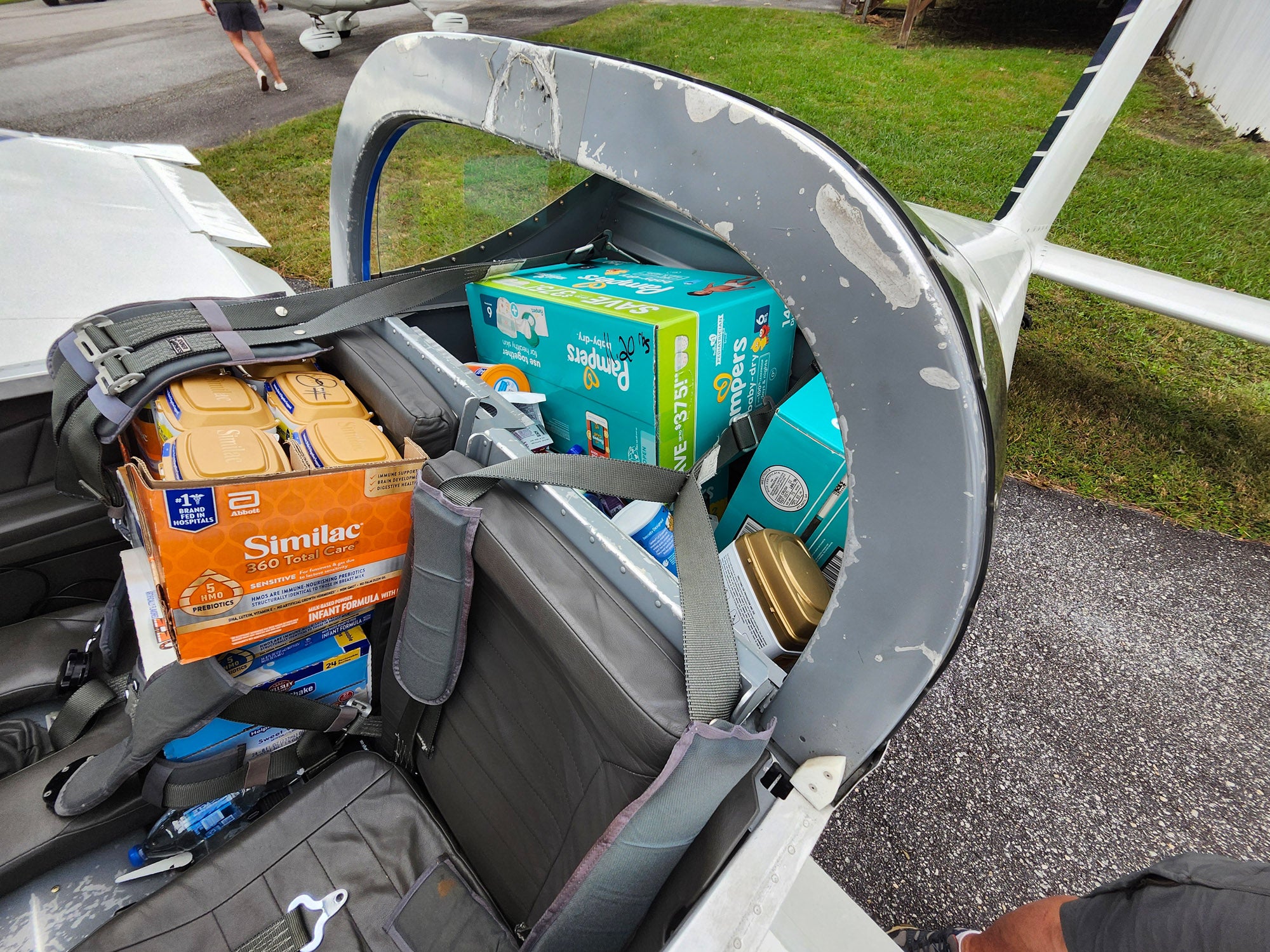
This left half of North Carolina, part of South Carolina, Georgia and Tennessee without power and communications. For many, no power meant no water. The roads were so compromised that delivering food and medical supplies, even the simplest of life’s necessities, was not possible.
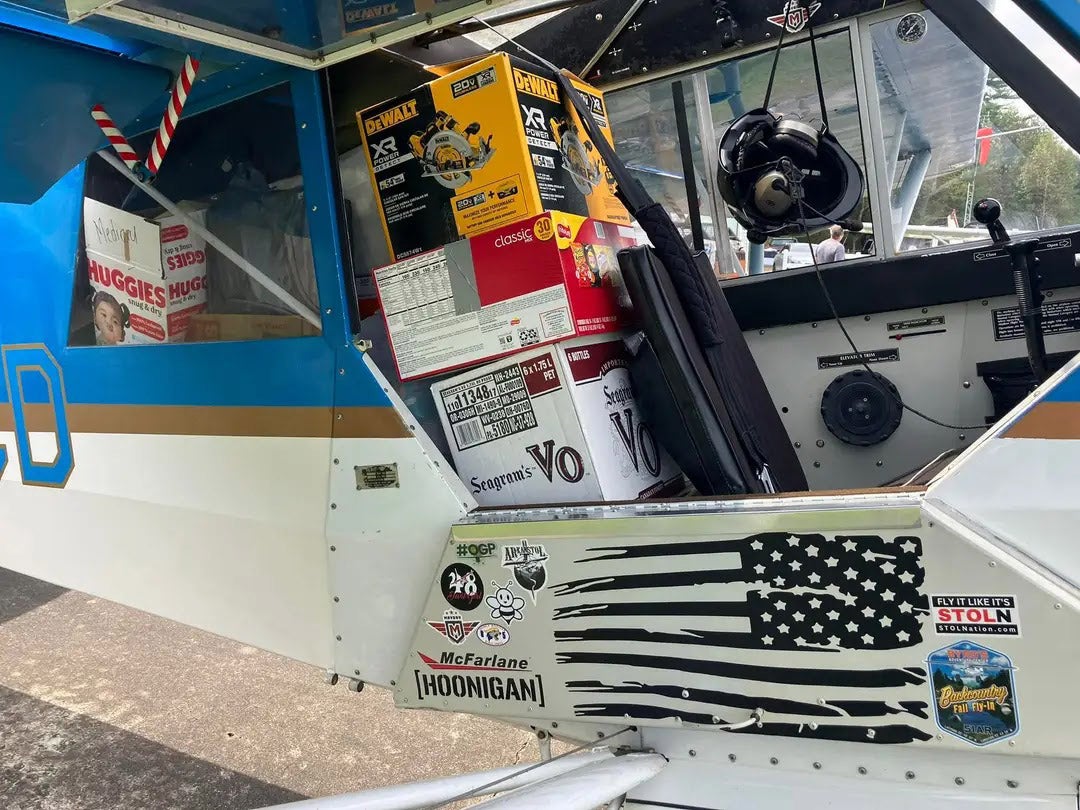
Mixed in with those impacted were members of Carolinas Aviators Network, CAN for short, who jumped into the fray and started using their aircraft to deliver relief supplies to the now-isolated mountain communities. (Full disclosure, author Repucci is a board member of the CAN organization.)
CAN was started by Mike Davis, a retired fighter pilot, who wanted a “family friendly” Facebook group where he could find like-minded local pilots who would like to meet up for hamburgers or BBQ. A few short years later, the group had grown to over 6000 members, expanded its reach to other social media platforms and added a board of directors with a vision to use the local pilot community to “do good.” Prior to the arrival of Hurricane Helene, the organization applied to the IRS for a 501(c)(3) tax exempt status. As of this writing, CAN has received approval from North Carolina, and is waiting for a letter of determination from the IRS.
The day after Helene blew through and the extent of the damage became evident, CAN member Matt Aschbrenner, who owns and flies a Nesmith Cougar, posted on the CAN Facebook page that “we” should do something to help. CAN Board of Director member Joel Amick, who built and flies a Rotorway Exec 162F helicopter, agreed. (Aschbrenner and Amick discovered helping people in need is their calling and have since created a relief organization titled the United Carolinas Cavalry with the blessing of the CAN organization.
Within hours, Aschbrenner had secured a large hangar at the Statesville, North Carolina, airport (KSVH) and locals started driving in with relief supplies. Many parked their cars and started receiving, cataloging, weighing and loading those supplies into CAN member’s aircraft, many of which were Experimental/Amateur-Built aircraft.
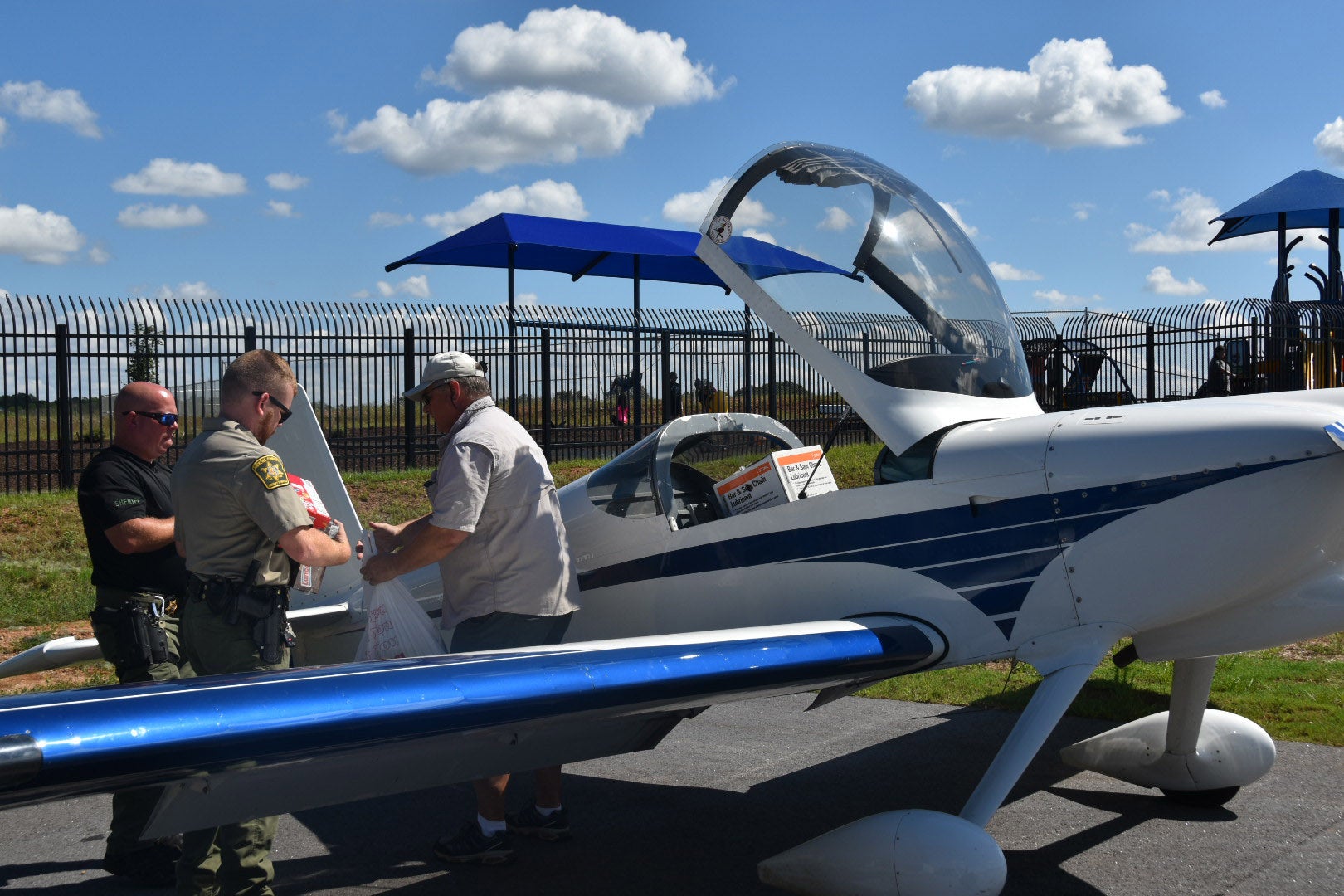
By the end of the week, more than 680 flights had taken 342,000 pounds of relief supplies to remote airports located in western North Carolina, upstate South Carolina, Northeastern Georgia, and Tennessee. These flights were performed by over 300 pilots who were supported by 1000+ volunteers on the ground.
Loading odd supplies in even odder aircraft owned and flown by pilots who may have never flown a relief sortie was a challenge for the CAN group. Although CANs process was in place within a few hours of collecting the first supplies, it continued to evolve throughout the week with input from the volunteer.
